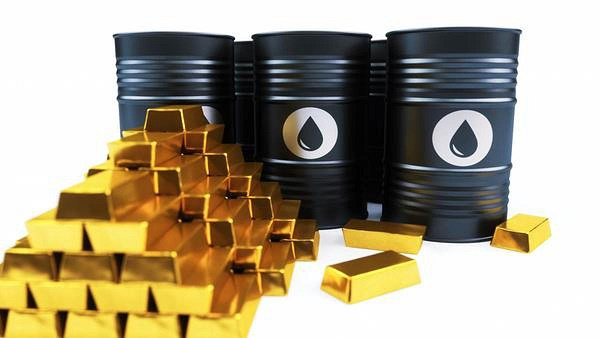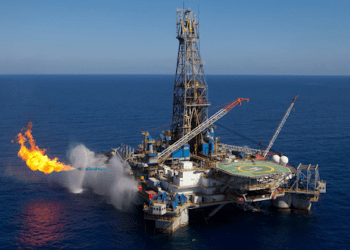Dr. Mustapha Abdul-Hamid, Chief Executive officer (CEO) of the National Petroleum Authority (NPA), has announced that the modalities for the distribution of petroleum products in the latest consignment received under Ghana’s Gold-for-Oil programme has been decided.
The modalities, he indicated have already been agreed upon by the regulators of the oil industry; the National Petroleum Authority (NPA) and Association of Oil Marketing Companies (AOMCs).
Touching on the modalities for the distribution of the petroleum products, Dr. Abdul-Hamid noted that they will ensure the impact of the gold-for-oil programme is felt by consumers across the country, while also addressing the concerns of the AOMCs regarding the allocation of petroleum products supplied under the programme to its members.
“The criterion takes into consideration the top 25 OMCs who distributed petrol and diesel in 2022 with not less than 45 retail outlets across the country.”
Dr. Abdul-Hamid

Dr. Abdul-Hamid hyped the implementation of the Gold-for-Oil programme indicating how it had slightly reduced the prices of petroleum products at the pump and reduced forex risk.
Speaking at the meet-the-press in Accra yesterday, February 21, 2023, the NPA Boss said the country had received three cargoes so far, comprising; 41,000 Metric Tons (MT) of diesel in January, and another 40,000MT of diesel as well as 35,000MT of petrol which have just arrived and being discharged.
Dr. Abdul-Hamid stressed that “better results” should be expected from the arrival of the next cargoes under the Gold-for-Oil programme.
The meet-the-press under the auspices of the Ministry of Information that featured the NPA, focused on developments in the downstream petroleum industry on the theme: ‘Petroleum Downstream: Retrospect and Prospect’.
Recalling the events that warranted this submission from the NPA CEO, Edwin Provencal, Bulk Oil Storage and Transportation (BOST) Company noted that 18 Bulk Oil Distributors have already placed a demand for over 140,000 metric tons of the latest consignment of fuel under the Gold-for-Oil deal from BOST.
Provencal, with high expectations about the positive impact the newly received consignment will have on the citizenry, touted that consumers should this time expect to feel the impact at the pumps.

“In terms of the status of the incoming cargoes for February, we are expecting a total of 152,000 metric tons, made up 80,000 gas oil (diesel) and 72,000 gasoline (petrol).”
Provencal
Responding to how the company intends sharing the received metric tons of petroleum products among the oil distributors, he mentioned that a regulator placed in charge of that will handle it.
“In terms of the sharing, there is a regulator who is putting up a framework to ensure there’s equity and fairness in whatever is coming with the distribution. However, I can tell you on authority that we have had orders from 18 bulk oil distribution companies, totaling almost 140,000 metric tons.”
Provencal
He further indicated that, going forward, Ghanaians who are not in a good place today, will have some respite with respect to the reduction of energy prices together with its corresponding benefits on inflation.

BOST took delivery of the product this week and expecting more in the coming days.
Tracing the situation before the implementation of the Gold-for-Oil programme, Dr Abdul-Hamid said average monthly petroleum product import bill ranged from $350 million to $400 million, adding that the petroleum downstream dollar demand accounted for 20 percent of national demand.
The NPA Boss noted that in April 2022, Bank of Ghana (BoG) started a special exchange rate auction programme for the petroleum downstream and indicated the inability of the special auction programme to meet 100 percent of forex demand in the country.
“Inadequacy of BoG supply pushes BIDECs to speculate forex rates arbitrarily based on proposed rates from commercial banks.”
Dr. Abdul-Hamid
Explaining further, Dr. Abdul-Hamid stated that the gold payment was proposed as a solution to the pressure that petroleum downstream places on the cedi. In this regard, NPA has intensified price monitoring activities with penalties for defaulting service providers, he noted.
Some activities undertaken by NPA to ensure product quality and integrity
On activities undertaken to ensure product quality and integrity, the NPA Boss mentioned the supply of low sulphur fuels (cleaner fuels), a maximum of 50ppm for imports and a maximum of 1500ppm for domestic production.
Additionally, he noted that the NPA also undertakes periodic petroleum product monitoring exercises, conducts fuel marker monitoring and quality monitoring of fuel standards (Quality Control), including checking of water in fuel and collaborates with security agencies to prevent illegal imports, exports and product dumping.

The revocation of licenses and publication of the names of defaulting Petroleum Service Providers (PSPs) and Laycans allocation and monitoring to ensure adequate supply are some of the activities undertaken to ensure order in the downstream petroleum industry, Dr. Abdul-Hamid added.
READ ALSO: Serwaa Amihere Calls On GES To Stop Teachers From Sharing ‘Mockery’ Videos Of Kids





















